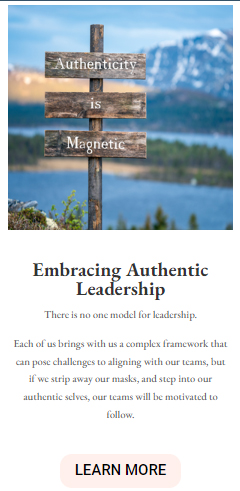We like to believe that what we have to say is important. Yet, so much of what we say, is less important than what we do, according to research. According to these studies, 85% of our communication is received non-verbally, leaving a measly 15% actually being heard. And, given that being heard is one of our core reasons for being in relationship, we may be sorely disappointed if our repeated words fail to hit their mark.
But, panic not: there are ways to improve the chances that you’ll be heard:
- Assertive communication can be learned easily and is highly effective.
- Listening skills (though they may appear to be non-verbal forms of communication) are also easy to improve.
Altering your non-verbal skills may require a little more effort!
Communication is the art and skill of receiving a message that has been sent by another, and effectively responding to that message.
Often, when we communicate, we are misunderstood, not because we haven’t spoken clearly, but because we haven’t really heard what was said.
We also know that how you listen may affect your understanding of others. We all have different sensory modalities that we use to listen and interpret what has been communicated to us. There are a number of modalities that we use to understand and communicate with one another. These include:
- Verbal
- Visual
- Auditory
- Olfactory
- Taste
- Kinesthetic
- Sensate
Determining how you listen and interpret messages from others will enable you to better understand miscommunications when they occur. Additionally, if you and your partner do not share the same primary sensory modality, or simpler, if you hear messages differently, then you may want to invest some time in learning to speak one another’s language!
Once we have a grasp of how we listen, we must learn to apply effective listening skills.
Follow these steps in order to listen optimally:
- Use good basic listening habits:
- Pay attention (to both the spoken, and unspoken messages)
- Listen to the whole message (Zip it!)
- Hear the message before evaluating or judging it (Breathe deeply and allow your partner to share the entire message).
- Paraphrase what you’ve heard for verification of the message (Reflect back what you have heard in your own words).
- Avoid bad listening habits
- “selective attention”: listening when it suits you won’t improve your partner’s sense of feeling “heard”
- “Pseudolistening”: listening when you’re attending to other tasks increases the likelihood that you will miss important data, and that you will provide your partner with only some of your attention.
- Listening without hearing: when you are engaged in determining what you’re going to say next, or rehearsing your response or argument to your partner’s position, you won’t gain a clear understanding of what has been said (and it will show through!).
- Interrupting: our grandmothers and first grade teachers couldn’t all have been wrong about the impacts of this bad habit!
- Disclosing too much too soon: this bad habit can both overwhelm the speaker and may also reflect your urge to respond before the entire story has been told.
- Define the issue
- Why is the issue being addressed?
- Has this issue been addressed before?
- If so, was the issue resolved before?
- Use passive listening skills at first:
- Let your partner do the talking
- Be aware of how your partner is communicating in addition to what is being said
- Keep your opinions to yourself for now!
- Empathize with your partner
- Use active listening skills after the issue has been reviewed
- Your questions can help avoid or resolve possible misunderstandings. In order for your questions to be well-received, use the following techniques:
- Paraphrasing
- Put into your own words, what you believe you have heard
- Clarification
- Ask questions to identify and improve your understanding of what has been said
- Personalization
- Offer personal examples of how you can relate to help your partner feel less isolated and to experienced your understanding of the issue. But remember, this is to assist your partner to feel heard and understood. It is not an opportunity for you to shift the attention to yourself!
Some additional helpful tips for achieving clear communication include:
- Explore the problem
- Ask open-ended questions (Avoid those questions that can be answered with “yes” or “no”)
- Avoid “leading” questions (These are really just efforts on your part to impart your own opinions!)
- Make sure that your non-verbal communication matches your spoken message
- Together, identify solutions for the issue
- After you’re reached resolution, review the process that you went through together
By definition, assertive communication:
- Is open, honest, direct and appropriate expression of one’s thoughts, wishes, feelings and opinions.
- Does not violate one’s own rights or those of another to be treated respectfully.
- Does not cause undue anxiety or guilt.
Many people get confused between aggressive communication and assertive communication. To clarify:
- Non-aggressive behavior disregards what you want/are
- Aggressive behavior disregards what your partner wants/is
- Assertive behavior considers what each party wants/is
As was mentioned previously, much of what is communicated is expressed non-verbally. So, if you want to be taken seriously, you have to assume the assertive stance! Make sure that your posture matches your message. The assertive posture requires that you:
- Stand tall, shoulders back, head up
- Make consistent eye contact
- Keep your voice steady in pitch and volume
- Make sure that your gestures match your message
- Keep your body “open” rather than “closed”
- Keep your hands and feet calm
You may also want to try thinking assertively!
- Focus on positive expressions of your message
- Don’t negate yourself or your needs.
In order to really espouse the assertiveness that will enable you to get all that you desire, it will also benefit you to assume the assertive emotional stance:
- Regulate your co-dependence
- Co-dependence refers to the state of one’s self-esteem relying on the thoughts, feelings, opinions, or actions of another human being
- Read self-help books
- Watch Oprah!
- See a therapist (OK- I’m biased!)
- Join CoDependents Anonymous (CoDA)
- Use your Bill of Rights to remind yourself what you deserve!
We all have the following rights:
- I have the right to change my mind.
- I have the right to say “no!”
- I have the right to ask for favors.
- I have the right to ask for emotional support.
- I have the right to spend time doing what I want to do.
- I have the right to disagree with others.
- I have the right to be treated with respect.
- I have the right to make my own decisions.
- I have the right to reject others’ advice or suggestions.
- I have the right to say “yes!” to things I want to do.
- I have the right to take a vacation or day off.
- I have the right to put my needs and wants ahead of those of others.
- I have the right to express my feelings.
- I have the right to compliment myself.
- I have the right to accept or reject others’ criticisms of me.
- I have the right to accept others’ compliments of me.
- I have the right to be close to others.
- I have the right to be physically and emotionally healthy.
- I have the right to be sexually fulfilled.
- I have the right to desire great things.
In concert with your assertive emotional and physical stance, assertive communication requires healthy verbal expression. Some of the skills which may improve your chances of being heard and respected include the following:
- Language
- Don’t apologize
- Use direct, simple, clear language that is at the level of your audience or “target”
- Style
- Approach your task with the attitude that you “can” rather than that you “can’t”
- Protocol:
When in doubt, use the Assertive Communication Template:
- Describe
- When you…
- Express
- I feel…
- Specify
- I want… would like… would appreciate…
- Consequences
- If you do… (state the reward)
- If you don’t (state the action you will carry out)
Using all the tools in your toolbox will surely allow you to be heard! And, if you need a little bit more coaching to get your message across to one another, consultation can provide objective evaluation of your communication skills, as well as role modeling and skill building.









